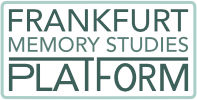
“Recollecting the Nation: The Nineteenth Century Revisited”
05 May 2011
Ann Rigney: “Narrating Beyond the National: The Case of Ivanhoe (1819)”
It is generally taken for granted in memory studies, following Pierre Nora’s Lieux de memoire (1984) among others, that the nation was the privileged social framework of memory in the nineteenth century, and that literature had a privileged role to play in its imagination (Anderson 1983). It is assumed moreover that this national cultivation of memory was monolithic and unreflective relative to what came later. In this paper, I propose to examine memory-building from a more dynamic perspective as a way of mediating between mnemonic communities at local, national and transnational levels in which literature had a key role to play. I will illustrate my talk with reference to the composition and reception of Walter Scott‘s novel Ivanhoe (1819), arguably the most famous work of historical fiction as well as an international bestseller.
Joep Leerssen: “Literary Historicism and the Romantic Discovery of the National Past”
The process of rediscovering and appropriating the vernacular past as national history and national identity formed a conduit between Romanticism and cultural nationalism. It involved various scholarly, antiquarian and philological pursuits such as the re-edition of old manuscripts and epics, the codification of folktales and oral epic, and the etymological typology of Europe’s vernacular languages. On the basis of some sample cases I want to profile this paradigm in cultural self-reflection as a phenomenon which, though focused on the nation’s specificity, was Europe-wide in its proliferation.
____________________________________________
Ann Rigney is Professor of Comparative Literature at Utrecht University and a member of the Royal Netherlands Academy of Sciences. She has published widely in the field of memory studies, philosophy of history, and memory cultures in the nineteenth century. Her many publications include The Rhetoric of Historical Representation (1990), Imperfect Histories (2001), and Movable Monuments: Remembering and Forgetting Walter Scott (forthcoming). She is co-editor (with Astrid Erll) of Mediation, Remediation and the Dynamics of Cultural Memory (2009).
Joep Leerssen is Academy Professor at the University of Amsterdam, where he holds the chair in Modern European Literature and coordinates the Study Platform on Interlocking Nationalisms www.spinnet.eu. Among his books are Remembrance and Imagination (1996), National Thought in Europe (2008), Imagology (2007), Editing the Nation‘s Memory (2009), and De Bronnen van het Vaderland (2011).

“Recollecting the Nation: The Nineteenth Century Revisited”
05 May 2011
Ann Rigney: “Narrating Beyond the National: The Case of Ivanhoe (1819)”
It is generally taken for granted in memory studies, following Pierre Nora’s Lieux de memoire (1984) among others, that the nation was the privileged social framework of memory in the nineteenth century, and that literature had a privileged role to play in its imagination (Anderson 1983). It is assumed moreover that this national cultivation of memory was monolithic and unreflective relative to what came later. In this paper, I propose to examine memory-building from a more dynamic perspective as a way of mediating between mnemonic communities at local, national and transnational levels in which literature had a key role to play. I will illustrate my talk with reference to the composition and reception of Walter Scott‘s novel Ivanhoe (1819), arguably the most famous work of historical fiction as well as an international bestseller.
Joep Leerssen: “Literary Historicism and the Romantic Discovery of the National Past”
The process of rediscovering and appropriating the vernacular past as national history and national identity formed a conduit between Romanticism and cultural nationalism. It involved various scholarly, antiquarian and philological pursuits such as the re-edition of old manuscripts and epics, the codification of folktales and oral epic, and the etymological typology of Europe’s vernacular languages. On the basis of some sample cases I want to profile this paradigm in cultural self-reflection as a phenomenon which, though focused on the nation’s specificity, was Europe-wide in its proliferation.
____________________________________________
Ann Rigney is Professor of Comparative Literature at Utrecht University and a member of the Royal Netherlands Academy of Sciences. She has published widely in the field of memory studies, philosophy of history, and memory cultures in the nineteenth century. Her many publications include The Rhetoric of Historical Representation (1990), Imperfect Histories (2001), and Movable Monuments: Remembering and Forgetting Walter Scott (forthcoming). She is co-editor (with Astrid Erll) of Mediation, Remediation and the Dynamics of Cultural Memory (2009).
Joep Leerssen is Academy Professor at the University of Amsterdam, where he holds the chair in Modern European Literature and coordinates the Study Platform on Interlocking Nationalisms www.spinnet.eu. Among his books are Remembrance and Imagination (1996), National Thought in Europe (2008), Imagology (2007), Editing the Nation‘s Memory (2009), and De Bronnen van het Vaderland (2011).


